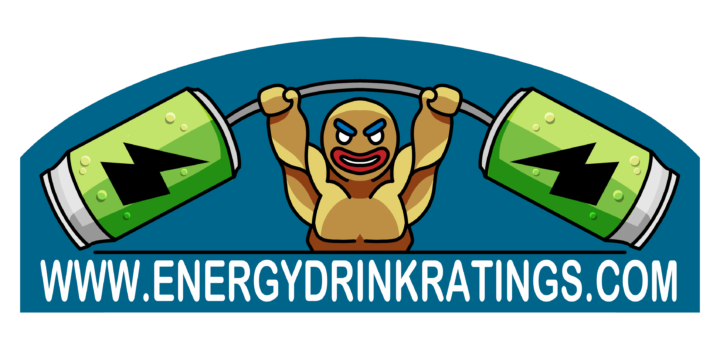The energy drink market is booming, with many people turning to these beverages for a quick boost. The global energy drink market is currently valued at approximately $86.9 billion and is projected to grow significantly (almost double!), reaching around $153.8 billion by 2030. But as awareness grows about what we put into our bodies, there’s been a noticeable shift towards organic and natural energy drinks.
These options promise the same energy-boosting effects but with ingredients that are easier to pronounce and, often, better for you. Let’s dive into what makes these drinks “organic,” their potential health benefits, and the risks and side effects to consider. We’ll also explore how these options stack up against traditional popular energy drink brands.
To be labeled as “organic,” a product must meet specific criteria set by regulatory bodies. In the United States, for example, the USDA Organic label means that the product is made with at least 95% organic ingredients. These ingredients must be grown without the use of synthetic pesticides, genetically modified organisms (GMOs), or sewage sludge fertilizers.


In the case of organic and natural energy drinks, this means the caffeine sources, sweeteners, and other ingredients in energy drinks are derived from organic farming practices.
Organic certification also extends to how the ingredients are processed. This means no artificial preservatives, colors, or flavors can be used. The emphasis is on keeping the product as close to its natural state as possible, which is a significant draw for health-conscious consumers.
So, why opt for organic and natural energy drinks over conventional ones? There are several reasons, starting with the health benefits. Organic products are less likely to contain harmful chemicals, as they are grown without synthetic pesticides and fertilizers. This can reduce the number of toxins entering your body, which is a big win for your overall health.
Another health benefit is the potential for fewer allergens. Synthetic additives and preservatives used in non-organic energy drinks can sometimes trigger allergic reactions. By choosing organic options, you may reduce your exposure to these allergens


But it’s not just about what organic products lack; it’s also about what they contain. Organic energy drinks often include a variety of natural ingredients that offer added health benefits. For example, many organic energy drinks use green tea or yerba mate as a caffeine source. These ingredients are rich in antioxidants, which can help protect your cells from damage. Additionally, organic drinks often use natural sweeteners like agave or honey, which can be easier on your blood sugar levels compared to high-fructose corn syrup or artificial sweeteners.
Organic certification also extends to how the ingredients are processed. This means no artificial preservatives, colors, or flavors can be used. The emphasis is on keeping the product as close to its natural state as possible, which is a significant draw for health-conscious consumers.
When you flip over a can of organic or natural energy drinks, you’ll likely see a list of ingredients that sound familiar and, well, natural. Common ingredients include:
- Caffeine Sources: Organic green tea, yerba mate, or guayusa are popular choices. These provide a smoother, longer-lasting energy boost compared to synthetic caffeine.
- Natural Sweeteners: Instead of high-fructose corn syrup, you’ll find organic cane sugar, agave syrup, or honey.
- Herbal Extracts: Ingredients like ginseng, ginkgo biloba, and echinacea are often added for their purported health benefits.
- Natural Flavors: These come from real fruit juices or extracts, not synthetic chemicals.
- Electrolytes: Coconut water is a popular addition for its natural electrolytes, which can help with hydration.
These ingredients are chosen not just for their energy-boosting properties but also for their additional health benefits. For example, ginseng is often pushed for its potential to improve cognitive function, while ginkgo biloba may help with memory and concentration.
While organic and natural energy drinks offer several health benefits, they are not without risks and side effects. The most obvious risk is still the caffeine content. Even though the caffeine in organic drinks may come from natural sources, it’s still a potent stimulant. Consuming too much can lead to symptoms like jitteriness, increased heart rate, and anxiety.

Another consideration is the sugar content. Just because a drink is organic doesn’t mean it’s low in sugar. Organic cane sugar and agave syrup are still sugars and can contribute to the same health issues as regular sugar, such as weight gain and increased risk of type 2 diabetes.
Additionally, some people might be sensitive to herbal ingredients. While herbs like ginseng and ginkgo biloba are generally considered safe, they can interact with certain medications or exacerbate conditions like anxiety and insomnia. Always check with a healthcare provider if you’re unsure how these ingredients might affect you.

Energy drinks, even those that are organic, can have a significant impact on mental health. The caffeine in these drinks can boost alertness and mood, which can be beneficial in small doses. However, excessive consumption can lead to anxiety, restlessness, and even panic attacks. It’s also worth noting that the sugar content in these drinks can cause spikes and crashes in energy levels, which can affect mood and overall well-being.
For those dealing with mental health issues like anxiety or depression, it’s vital to be mindful of how caffeine and sugar affect your symptoms. While a single drink might provide a temporary boost, the long-term effects can be less beneficial. Moderation is key, and if you find yourself relying on energy drinks to get through the day, it might be worth exploring other ways to manage your energy and mood.
If you’re concerned about the ingredients in energy drinks and their impact on your mental health, why not try making your own? DIY energy drinks are growing in popularity and allow you to control exactly what goes into your beverage, from the caffeine source to the sweeteners and additional ingredients.

The demand for organic and natural energy drinks is growing, and the market is responding with an ever-expanding range of options. More mainstream energy drink brands are now offering organic lines to cater to health-conscious consumers. Brands like Runa, Guayaki, and Hiball are leading the charge, offering drinks made from organic and sustainably sourced ingredients.
These brands not only focus on the quality of their ingredients but also on ethical sourcing and environmental impact. For example, Guayaki emphasizes its commitment to sustainable harvesting practices for yerba mate, while Runa works closely with indigenous communities in the Amazon to source guayusa leaves.
When comparing organic and natural energy drinks with their conventional counterparts, there are a few key differences to consider. Conventional energy drinks often contain synthetic caffeine, artificial flavors, and preservatives, which can pose some long-term risks for some consumers. Organic options avoid these additives, focusing instead on natural, minimally processed ingredients.
However, organic drinks aren’t always lower in calories or sugar. It’s essential to read labels carefully, as some organic energy drinks can be just as high in sugar and calories as conventional ones. The difference lies in the source of these ingredients—organic cane sugar versus high-fructose corn syrup, for instance—which can impact how they are metabolized and their effects on the body.


One of the biggest draws of organic or natural energy drinks is their use of natural ingredients. For many consumers, the idea of consuming fewer synthetic chemicals and more whole, natural foods is appealing. Ingredients like green tea, yerba mate, and coconut water are not only natural but also bring additional health benefits like antioxidants and electrolytes, which can aid in hydration and overall well-being.
Natural ingredients can also be more appealing from a flavor perspective. The taste of natural fruit extracts and herbal blends are often very different from the artificial flavors found in many conventional energy drinks. For those looking for a more authentic and less chemically enhanced flavor profile, organic options can be a refreshing alternative.
Choosing these drinks isn’t just about personal health—it’s also about supporting sustainable and ethical practices. Organic farming methods are typically more environmentally friendly, avoiding synthetic pesticides and fertilizers that can harm ecosystems and those living in them.
Additionally, many organic energy drink brands prioritize fair trade and sustainable sourcing practices, ensuring that the ingredients are not only good for you but also for the planet and the communities that produce them.

The future looks incredibly bright for the organic and natural energy drinks market. As consumer awareness about health and sustainability continues to grow, so does the demand for cleaner, more transparent products. This trend is pushing the industry toward more innovation and better practices, from ingredient sourcing to production methods.
With so many options available, choosing the right energy drink can feel overwhelming. However, that’s where we come in. Make sure to rate and review drinks that you particularly enjoy on our website and help others to make informed decisions before they support an energy drink brand.
Remember, the key to reaping the benefits of energy drinks—organic or otherwise—is to consume them responsibly and within reason. Whether you’re reaching for a can of yerba mate or mixing up your own concoction at home, being cognizant of the ingredients and how they affect your body and mental health is essential
By exploring the world of organic and natural energy drinks, you can find a cleaner way to boost your energy while staying true to your values and nutritional goals.

